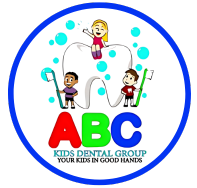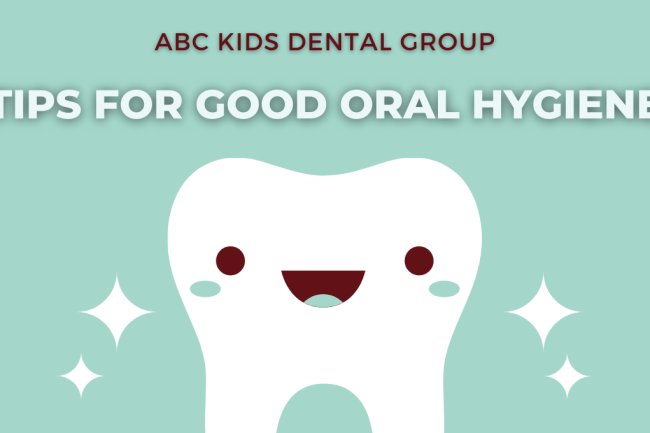Understanding Infant Teething in Reseda: Symptoms, Signs, and Treatments to Keep Your Baby Comfortable
Discover everything you need to know about infant teething in Reseda, from symptoms like excessive drooling and fever when teething molars to treatments such as fluoride therapy. Learn how to care for your baby’s teeth with expert advice from ABC Kids Dental.

Teething is a significant milestone in an infant's development, often causing discomfort and distress. As parents, understanding the symptoms of teething and knowing how to manage them can make all the difference. In Reseda, CA, pediatric dentists like those at ABC Kids Dental Group are equipped to guide parents through this process, ensuring that both the child and the parents have a smoother experience during this challenging phase.
In this blog, we'll discuss everything you need to know about infant teething, from fever when teething molars, excessive drooling, and teething hot head with no fever, to the signs of plastic teeth in infants and how fluoride therapy plays a role. Whether you're dealing with symptoms like white spots on infant teeth or yellow spots, or wondering about a tooth with a crown, we've got you covered.
What Is Infant Teething and When Does It Start?
Teething occurs when an infant's first set of teeth (also called primary teeth) start to emerge through the gums. This usually happens around six months of age, but can vary slightly. While the teething process can cause discomfort, it’s important to know that it’s a normal part of your baby’s development.
Key Symptoms of Infant Teething
There are several common signs of infant teething that parents can look out for:
1. Excessive Drooling
One of the first signs your baby is teething is excessive drooling. This happens because the teething process stimulates the production of saliva. If your baby seems to be drooling more than usual, teething might be the cause.
2. Fever When Teething Molars
Some babies may develop a low-grade fever while cutting molars, which is part of the natural teething process. However, it’s important to monitor the fever and consult with your pediatric dentist or doctor if the fever becomes high or is accompanied by other symptoms.
3. Teething Hot Head, No Fever
Another common symptom is a hot head, where your baby feels warm to the touch but doesn't actually have a fever. This can happen due to the irritation and inflammation caused by the teeth pushing through the gums.
4. Swollen and Tender Gums
As the teeth emerge, the gums may appear swollen or red. This can be painful for your baby, making it one of the more noticeable signs of teething.
5. Changes in Eating or Sleeping Patterns
Teething discomfort may cause your baby to refuse food or have trouble sleeping. This is due to the soreness in their gums, which can make eating or lying down uncomfortable.
Signs of Plastic Teeth in Infants
While rare, sometimes babies may have a condition where their first teeth look different from typical teeth. This includes "plastic teeth," which may appear translucent or have a yellow or white color. If you notice any unusual discoloration in your baby’s teeth, consult a children's dentist in Reseda. It’s crucial to rule out other possible causes like tooth decay.
White Spots and Yellow Spots on Infant Teeth: What They Mean
You may notice white spots or yellow spots on your infant's teeth as they begin to emerge. These spots can be signs of early tooth decay or enamel hypoplasia (a condition where the enamel doesn’t form properly). It’s essential to keep an eye on the condition of your baby’s teeth and visit a dentist regularly for check-ups.
White Spots
White spots often indicate early stages of tooth decay. This can be caused by plaque buildup on the teeth. Good oral hygiene, even for infants, can help prevent this.
Yellow Spots
Yellow spots on teeth could also indicate early decay or staining. If your baby’s teeth are stained, avoid sugary foods and drinks.
Fluoride Therapy for Infants
Fluoride therapy is often recommended to strengthen your baby’s teeth and prevent tooth decay. It’s especially important for babies who are at risk of developing cavities. However, fluoride should only be used under the guidance of your pediatric dentist. Too much fluoride can lead to dental fluorosis, which causes white spots on the teeth.
At ABC Kids Dental Group in Reseda, we provide fluoride treatments as part of our preventative dental care for infants and toddlers.
Dealing with a Tooth with a Crown
In some cases, an infant may need a crown on a baby tooth, especially if the tooth is severely decayed. A crown is typically used to protect the tooth from further damage and ensure it stays intact until it naturally falls out. This is often a concern if the baby has suffered from early childhood cavities. Your Reseda children’s dentist will provide guidance on when and how to proceed with this option.
How to Soothe Your Teething Baby
If your baby is struggling with teething pain, there are a few simple remedies you can try to help them feel more comfortable:
-
Teething Rings or Toys: These provide something for your baby to chew on, which can help alleviate pressure on the gums.
-
Cold Compress: A cold washcloth or a chilled teething ring can help numb the sore gums.
-
Pain Relief: Talk to your pediatrician about over-the-counter pain relief medications like acetaminophen or ibuprofen.
-
Gentle Gum Massage: Using a clean finger, gently massage your baby's gums to help alleviate discomfort.
When to See a Dentist
If your baby’s teething symptoms are particularly severe or you notice any unusual signs, it’s important to schedule a visit with a pediatric dentist. In Reseda, ABC Kids Dental Group is here to support you with expert advice and care. We recommend regular checkups starting from the emergence of the first tooth to ensure that your baby’s teeth and gums stay healthy.
Location & Contact:
ABC Kids Dental
18235 Sherman Way, Reseda, CA 91335
Phone: 818-401-6777
Visit our website: www.abckidsdentalla.com
Click Here to Visit
What's Your Reaction?























